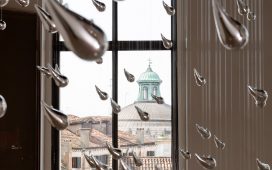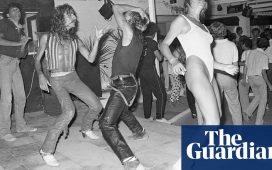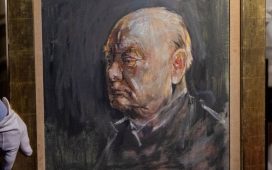If Trump, Brexit and Boris Johnson – to name a few culprits – leave you feeling extremely tired, you’re not alone. London and LA-based artist Patrick Staff’s new exhibition at Dundee Contemporary Arts deals with the widespread condition of exhaustion.
Staff’s practice explores ideas of discipline, dissidence, labour and the queer body. This show includes film, sculpture, installation and prints, built around German writer Heinrich von Kleist’s play The Prince of Homburg, from which the show takes its title. Written in 1810 but set in 1675, Kleist’s drama opens with a sleepwalking prince who, overcome with the burdens of war, half dreams and half lives a narrative of victory and love. Confused about what is real and what is not, the prince overrides his superior’s commands on the battlefield and, despite winning the battle, is sentenced to die.

Staff’s exhibition takes Kleist’s play as a starting point to think about exhaustion as a reaction to structural oppression and the abuses of power. Staff signals that to be spent is a political condition; a bodily, psychological and social experience used by the state as a means of control.
Considering the potential of dreaming as a form of resistance, Staff places the night as a time of heightened queer relationality. For the artist, dreaming is not only an exit strategy, but also a means through which to conjure other possible realities.
The exhibition is installed across two rooms; one with natural light, the other in darkness. Connecting both galleries is The Appetite, an aluminium fortification that runs across the top of the walls. From where the visitor stands, it is not clear whether we are in or out of the space the aluminium structure seeks to protect. Threateningly, items of clothing, flowers, candles, strands of LED lights and even chairs are caught in its sharp, barbed hooks.
A series of photograms, made without a camera on light-sensitive paper, reveal objects – a chain, a scalpel, a glove – relevant to a film installed in a room with regal-red walls. Staff’s three-part, 23-minute film mixes scenes seemingly witnessed by the eyes of the Prince of Homburg – snippets of wandering around a garden, dazing flashes between day and night – with interviews and sequences that involve a whole new cast.
Singer-songwriter Macy Rodman candidly appears in her bedroom playing extracts from her song Lazy Girl, which describes negative perceptions of her tiredness while she was adjusting to the hormonal shift during her transition. Actor Debra Soshoux talks about the importance of recognising feelings of your gender beyond what is dictated by the physical body; and writer Che Gossett makes a poignant connection between sexual liberation and the erasing of gender norms as being in necessary tandem with the abolition of prisons.

Filtered through Kleist’s storyline, these interjections – plus others by writer Sarah Schulman and artists Nikita Gale and Nour Mobarak – open up questions of exhaustion in response to punishment, the significance of a politicised death, and the inflicting of violence towards practices of desire that sit outside normative, heterosexual, white, abled, cis consciousness.
The day before Staff’s exhibition opening, the Scottish government retracted its plans to update Scotland’s gender recognition laws, failing to provide an easier and less wounding process for transgender people to change their legal gender. Staff’s exhibition is an urgent reminder that the law, even more than 200 years after Kleist’s world, forces certain bodies into greater strain than others.








